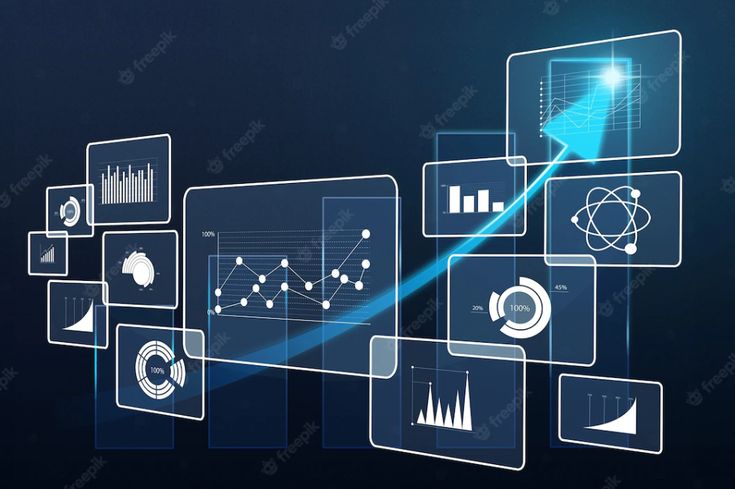A Journey Through Data Science: From Analysis to Action
 Brijesh Prajapati
Brijesh Prajapati
In today's data-driven world, harnessing the power of data is increasingly essential for individuals and organizations alike. Data science, a multidisciplinary field that integrates statistics, computer science, and domain expertise, provides tools and techniques to extract valuable insights from data and make informed decisions. This article explores the landscape of data science, from its foundational concepts to its practical applications, offering a roadmap to navigate this dynamic field effectively.
Understanding Data Science
At its core, data science involves extracting knowledge and insights from data through various techniques, including data collection, cleaning, analysis, and interpretation, to uncover patterns, trends, and correlations. Data scientists utilize various tools and programming languages such as Python, R, and SQL to manipulate and analyze data efficiently.
The Data Science Lifecycle
The data science process typically follows several stages:
Problem Definition: Identifying the question or problem that data analysis aims to address, which involves understanding the business context and defining clear objectives.
Data Collection: Gathering relevant data from various sources, including databases, APIs, or sensors, while ensuring data quality and integrity.
Data Preparation: Preprocessing and cleaning the data to remove noise, handle missing values, and transform it into a suitable format for analysis, often involving exploratory data analysis to gain insights into the data's characteristics.
Exploratory Data Analysis (EDA): Analyzing and visualizing the data to uncover patterns, trends, and relationships, helping data scientists understand the underlying structure of the data and generate hypotheses for further analysis.
Modeling: Building predictive or descriptive models using machine learning algorithms or statistical techniques, which involves training the models on historical data and evaluating their performance using validation techniques.
Evaluation: Assessing the models' performance and interpreting the results in the context of the problem domain, which may involve fine-tuning the models or iterating on earlier stages of the life cycle.
Deployment: Implementing the models into production systems or decision-making processes, requiring collaboration with domain experts and stakeholders to ensure effective integration into existing workflows.
Monitoring and Maintenance: Continuously monitoring the models' performance in real-world scenarios and updating them as new data becomes available to maintain accuracy and relevance over time.
Key Concepts in Data Science
To effectively navigate the landscape of data science, understanding key concepts is essential:
Machine Learning: A subfield of artificial intelligence focused on building algorithms that learn from data to make predictions or decisions.
Deep Learning: A branch of machine learning using neural networks with multiple layers to model complex patterns in large datasets.
Big Data: Referring to datasets too large or complex to process using traditional data processing applications, with technologies like Hadoop and Spark enabling storage, processing, and analysis of massive volumes of data.
Data Visualization: Graphical representation of data to facilitate understanding and communication of insights, helping stakeholders interpret complex datasets and make informed decisions.
Ethical Considerations: Data science raises ethical concerns related to privacy, fairness, and transparency, requiring data scientists to consider the ethical implications of their work and ensure responsible data use.
Practical Applications of Data Science
Data science finds applications across various industries and domains:
Healthcare: Predictive modeling for disease diagnosis, personalized treatment recommendations, and health monitoring using wearable devices.
Finance: Fraud detection, risk assessment, algorithmic trading, and customer segmentation for targeted marketing campaigns.
E-commerce: Recommender systems for product recommendations, customer churn prediction, and sentiment analysis of customer reviews.
Transportation: Traffic forecasting, route optimization, and predictive maintenance for vehicles and infrastructure.
Energy: Demand forecasting, optimization of energy consumption, and predictive maintenance for power plants and renewable energy systems.
Conclusion
From analyzing customer preferences to predicting market trends, data science provides powerful tools for extracting insights and driving decision-making. Understanding the fundamental concepts and methodologies empowers individuals and organizations to navigate the complex data landscape effectively, driving innovation and growth. Whether you're a novice exploring the field or an experienced practitioner seeking to deepen your knowledge, embracing the principles of data science enables you to make smarter decisions and unlock new opportunities in your personal and professional endeavors. If you're interested in enhancing your skills in this field, consider enrolling in a Data Science Training Course in Lucknow, Indore, Gwalior, Delhi, Noida, or other cities in India.
Subscribe to my newsletter
Read articles from Brijesh Prajapati directly inside your inbox. Subscribe to the newsletter, and don't miss out.
Written by

Brijesh Prajapati
Brijesh Prajapati
I'm a digital marketer eager to expand my skills and knowledge. Passionate about staying updated with the latest trends, I thrive on learning new techniques and strategies to enhance my expertise.